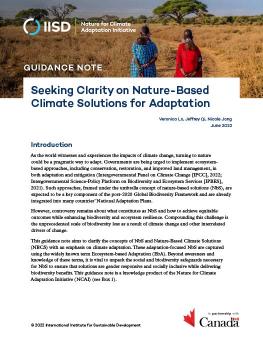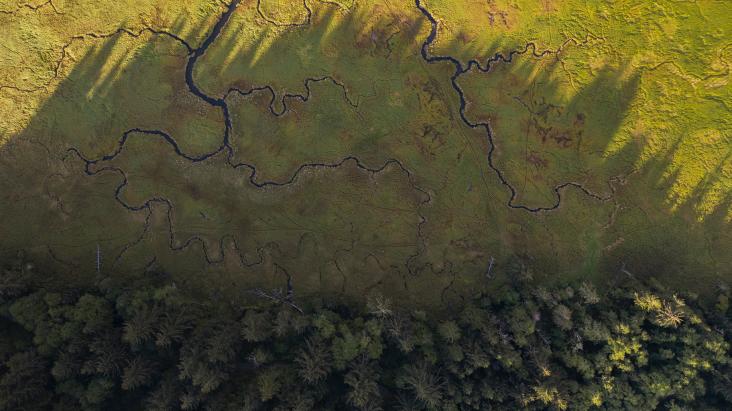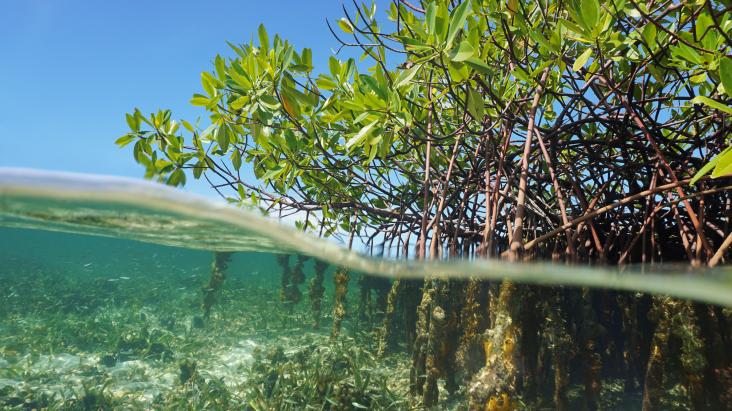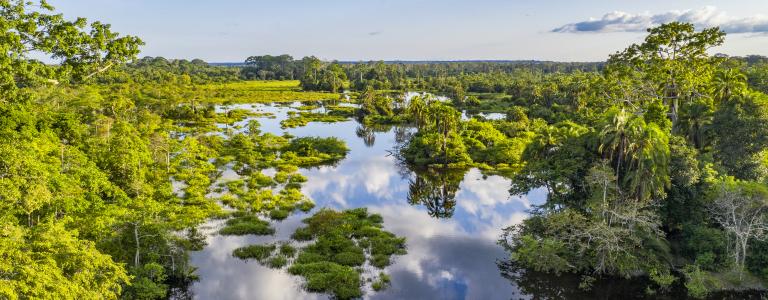Nature for Climate Adaptation Initiative
The Nature for Climate Adaptation Initiative (NCAI) aims to enhance civil society organizations’ capacity to implement nature-based climate solutions (NBCS) for adaptation that provide biodiversity and livelihood benefits to people of all genders and social groups in developing countries.
Creating an environment for accelerated action on NBCS for adaptation, the NCAI equips civil society organizations and practitioners involved in international development and climate adaptation with a solid baseline understanding to design compelling proposals and pursue projects, programs, and partnerships that will unleash the full potential of nature in confronting the climate crisis, while also promoting gender equality, social inclusion, the rights of Indigenous Peoples, and positive outcomes for biodiversity and ecosystems.
The NCAI offers three key tools:
- A self-paced, accessible e-learning course developed in partnership with the Deutsche Gesellschaft für Internationale Zusammenarbeit (GIZ) and the International Union for Conservation of Nature (IUCN).
- An online learning space with technical guidance, resources, and case studies.
- Targeted virtual and in-person learning exchange opportunities that foster a community of practice.

Seeking Clarity on Nature-Based Climate Solutions for Adaptation
This guidance note clarifies the concepts behind nature-based solutions (NbS), nature-based climate solutions (NBCS), and ecosystem-based adaptation (EbA).

New Initiative to Boost Capacity for Nature-Based Climate Solutions
The Nature for Climate Adaptation Initiative (NCAI) has one crucial goal: to help enable nature-based climate action that protects both livelihoods and biodiversity in the most vulnerable parts of the world.

Nature
Nature-based solutions—solutions that involve working with nature to address societal challenges—have gained momentum as a tool that can deliver multiple benefits.
Latest
You might also be interested in
How Timor-Leste Is Using the National Adaptation Plan (NAP) Process to Scale Up Ecosystem-Based Adaptation (EbA)
This case study discusses how the Timor-Leste government has adopted Ecosystem-based adaptation as a guiding principle in its NAP process to connect ecosystem protection and climate action. It will also share lessons for other countries seeking to use the NAP process to mainstream and implement EbA.
How Fiji Is Using the National Adaptation Plan (NAP) Process to Scale Up Ecosystem-Based Adaptation (EbA)
Fiji is using its national adaptation planning efforts to scale up and make Ecosystem-based Adaptation (EbA) a strategic priority.
Towards Gender-Responsive NAP Processes: Progress and Recommendations for the Way Forward
This report presents an analysis of progress on integrating gender responsive considerations in NAP processes. While there is no single approach to gender inequality and the linkages to climate change adaptation planning, implementation and M&E, countries often face similar challenges.
Building Resilience With Nature: Maximizing Ecosystem-based Adaptation through National Adaptation Plan Processes
This document provides guidance on maximizing ecosystem-based adaptation through National Adaptation Plan processes.





